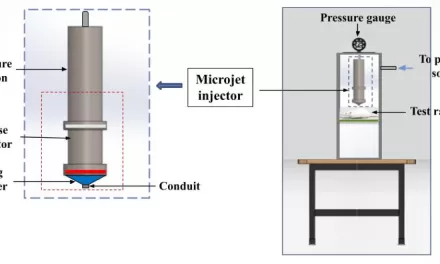WHO Europe News release
Jamie HP is the promoter of 2 weekly sex events in London, United Kingdom, that have been running for over 10 years. Each event attracts over 450 men of all ages.
When the monkeypox outbreak began in Europe, Jamie realized that it could pose a real problem for his customers and his business – particularly so soon after the restrictions imposed during the COVID-19 pandemic. However, having experienced similar outbreaks before, he was ready to play his part to end it.
Providing information and condoms to visitors
Jamie recalls how they reacted when the first cases in the United Kingdom were confirmed in mid-May.
“We sent messages to members in our database, giving them advice on what to do about monkeypox. We also developed an informative video that has so far had 55 000 hits, giving details on the signs to look out for and asking guys who had symptoms not to visit the venue but to self-isolate. In the venue itself, we’ve put up information posters and have started bringing in a health advisor on event days to answer our customers’ questions.”
Jamie has also personally been talking to groups of men as they arrive at the venue, advising them of the risks of monkeypox and encouraging them to wear condoms as a harm-reduction measure.
“We provide free condoms in our venue and have seen their use go up by about 500%. We advise our customers that although these won’t necessarily prevent monkeypox, they may reduce the risk of developing some of the painful symptoms – such as lesions in the rectum or around the anus – that many of our visitors report having already experienced.”
Men with monkeypox who reported having had anal-receptive intercourse also more frequently reported proctitis, a painful inflammation of the rectum’s lining, as a complication of their monkeypox disease.
Encouraging vaccination
When vaccines became available in the United Kingdom, Jamie was quick to act. He started informing his customers of where they needed to go and reaching out to health authorities to offer his support for the vaccination programme.
“We sent emails and texts out to all those eligible for vaccination, sharing information about clinics around the country that had stocks of vaccines so that our customers could make appointments for their jabs. Thanks to our efforts, over 1000 men went for vaccination at 1 London walk-in clinic alone.”
He adds, “I also contacted the UK Health Security Agency and volunteered our venue as a location for monkeypox vaccination. We had previously collaborated in 2017, when there was an outbreak of hepatitis C in London, and together managed to vaccinate nearly 200 men in a day at our SBN venue, helping bring the outbreak to a speedy end. We even invested in cold storage facilities so that vaccines could be stored at the right temperature on our premises.”
Unfortunately, vaccine supply is constrained internationally, and the rollout of monkeypox vaccines has not been as quick or as consistent as Jamie would like. Many men who have sex with men are still waiting to find out when they can get their vaccination.
“I’ve been campaigning to get vaccines rolled out to those most at risk, lobbying Members of Parliament to target vaccine programmes at the places where many men who have sex with multiple partners go – the sex-on-premises venues.”
A different approach is needed
Jamie highlights that health authorities need to have a different mindset in their response to the monkeypox outbreak compared to, for example, the COVID-19 pandemic, considering how and where the disease is being caught and spread.
“The men who go to sex-on-premises venues very often do so because they enjoy the anonymity, so relying on contact tracing to end the outbreak simply won’t work. That’s why targeting information and instigating vaccination programmes at these venues is crucial.”
WHO emphasizes that, while no single intervention will be 100% effective, interventions applied in combination can have a big impact.
Jamie points to the real need for more information, as many of his customers are anxious about monkeypox and are turning to him and his venue for advice.
“At times, I have received over 100 emails a day from customers worried about the disease. Almost a third of my customers say they have already had monkeypox, which tells you we need to be at the heart of considerations for responding to the outbreak and preventing further transmission.”
Closing venues is not the answer
Jamie HP’s proactive and collaborative approach to dealing with the monkeypox outbreak is illustrative of how sex-on-premises venues can be a big part of ending this outbreak. Indeed, without their involvement, the problem could be far worse.
“Closing all the sex-on-premises venues would simply drive the problem underground and make it more difficult to reach the men most at risk from infection. I’ve already heard of a private party taking place where all participants ended up getting monkeypox. Sex-on-premises venues like mine can and want to help end this.”











